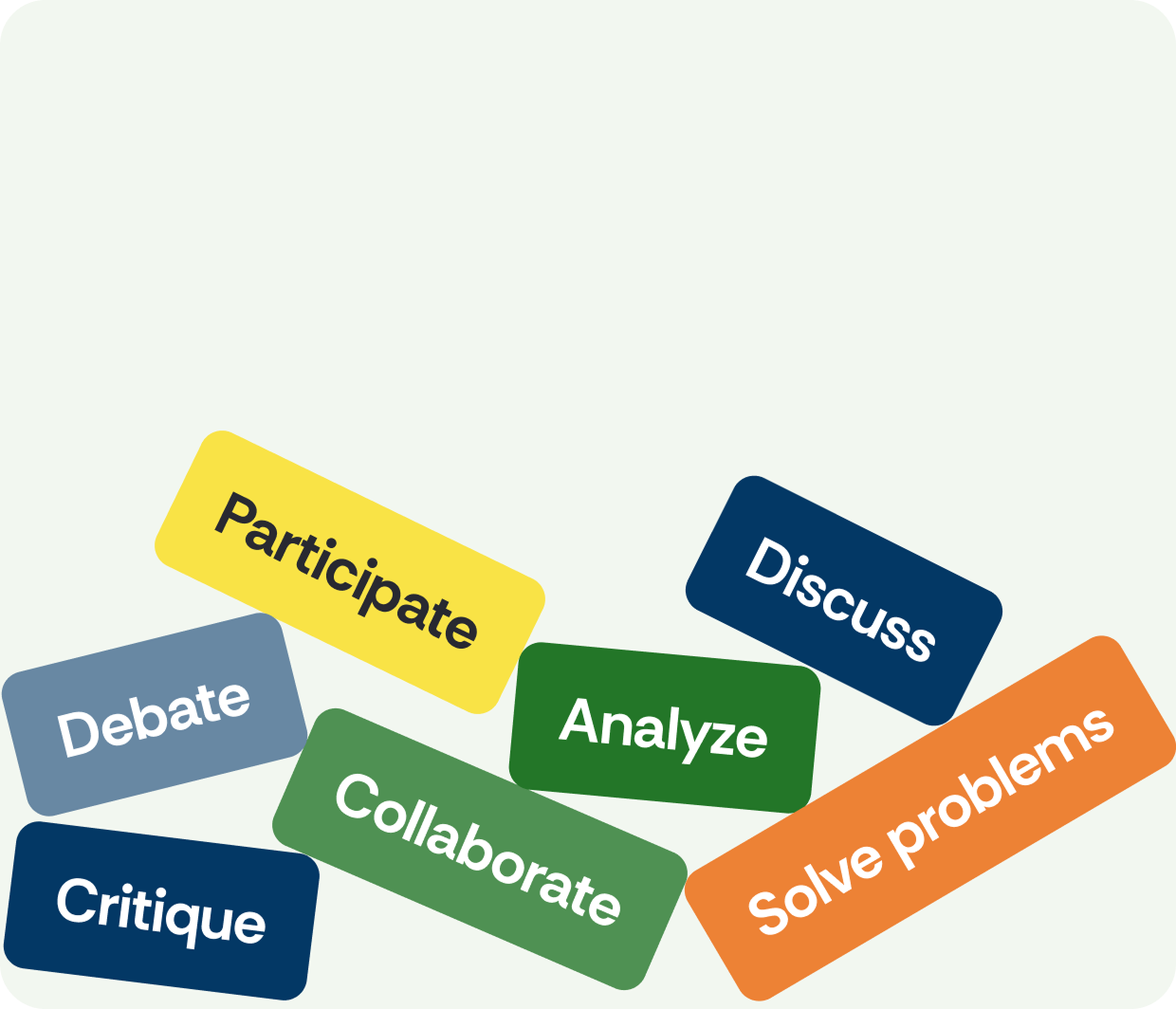Metacognitive Learning supported by FeedbackFruits
Empower students to take ownership of their learning and confidently tackle future challenges with metacognitive and self-regulation strategies.

What is metacognitive learning?
Metacognitive learning is a granular and process-oriented educational approach that empowers students to become reflective and more effective learners. By fostering awareness of their own learning process, it promotes self-regulation while cultivating essential long-term soft skills, including self-reflection, critical analysis, self-correction, resilience, organization, planning, and self-management through personal goal setting.

Why metacognitive learning?
Research indicates that metacognitive learning not only enhances overall academic success but also helps level the playing field for disadvantaged students. The gradual development of these learning habits proves valuable both inside and outside the classroom. As a deliberate, long-term process, metacognitive learning fosters deep personal transformation, cultivating a growth mindset, essential organizational and achievement-driven skills, goal-setting abilities, problem-solving strategies, and the resilience to navigate challenges with confidence and discernment.
Book a demoSupporting learning and performance
Students who engage in metacognitive strategies like self-testing, spaced learning, and collaborative reflection demonstrate improved retention, problem-solving skills, and the ability to regulate their own learning.

Stanton et al, 2021
Fostering Metacognition to Support Student Learning and Performance
Enhancing critical thinking
Integrating structured metacognitive strategies in online learning significantly improves students’ critical thinking, particularly in reasoning and evaluating diverse perspectives.

Pereles et al. 2024
The power of metacognitive strategies to enhance critical thinking in online learning
Mastering metacognitive strategies
Structured metacognitive instruction strengthens students' ability to plan, organize, and monitor their learning, leading to significant improvements in critical thinking, reasoning, and problem-solving skills.

Bureau et al, 2021
Metacognitive Strategies and Development of Critical Thinking in Higher Education

How does FeedbackFruits support metacognitive learning?
FeedbackFruits can help you integrate metacognitive and self-regulation strategies into your courses with tools designed to foster student autonomy, reflection, and critical thinking.
Since metacognitive learning unfolds through steps, FeedbackFruits’s ready-to-use, customizable templates provide a structured framework that guides educators in designing effective learning journeys to support this process.
Learning designs that incorporate activities focused on self-assessment (supported by FeedbackFruits Self Assessment, Peer Review and
Group Member Evaluation with the 'self-assessment' option enabled) and feedback (including teacher feedback, AI feedback, and the 'feedback on feedback' option) have proven particularly effective in enhancing student awareness and engagement.
Since metacognitive learning unfolds through steps, FeedbackFruits’s ready-to-use, customizable templates provide a structured framework that guides educators in designing effective learning journeys to support this process.
Learning designs that incorporate activities focused on self-assessment (supported by FeedbackFruits Self Assessment, Peer Review and
Group Member Evaluation with the 'self-assessment' option enabled) and feedback (including teacher feedback, AI feedback, and the 'feedback on feedback' option) have proven particularly effective in enhancing student awareness and engagement.
Get started with metacognitive learning using our pre-made learning templates
These templates—designed by experienced educators—offer proven structures for implementing metacognitive learning. Simply select a template, customize it, and launch engaging activities in minutes.
Browse all templatesMetacognitive learning, directly within your LMS
FeedbackFruits integrates seamlessly with your Learning Management System, making it simple to incorporate metacognitive learning activities into your existing courses. Whether you teach online, hybrid, or face-to-face, FeedbackFruits ensures that activating student participation is just a few clicks away—no additional overhead, no steep learning curve.





Explore our free resources about metacognitive learning

Feedback and assessment in higher education
A practical guide to facilitate holistic, inclusive, and technology-enhanced assessment.
Read more.avif)
What is self-assessment?
This article will provide a complete overview of self-assessment: its definition, an analysis of the benefits and challenges, and how to design and facilitate a fruitful self-assessment activity.
Read more
From peer-assessment to teaching excellence at Imperial College London
Imperial College London utilizes FeedbackFruits to elevate self- and peer-assessment processes for the students.
Read moreSee what FeedbackFruits learning activities can be used to support metacognitive learning
Metacognitive learning is hard. FeedbackFruits makes
it easier.
Unlock the full potential of metacognitive learning and more with the Learning Design System.
Explore the Learning Design System










